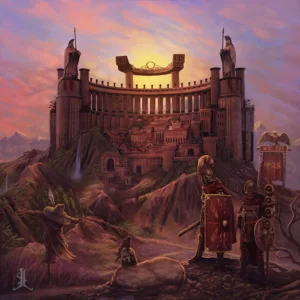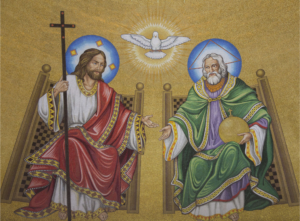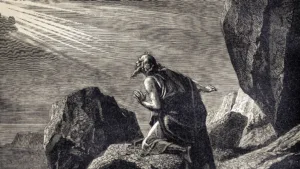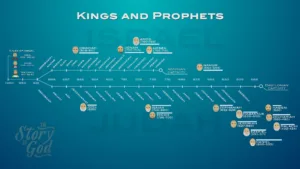Historical Background
By the 16th Century the Roman Catholic Church had become corrupt. The corruption expressed itself in three major areas:
- doctrinal understanding and interpretation,
- they elevated church tradition above scripture,
- they applied worship practices in ways that led away from biblical teachings of Christ.
So, God raised up a professor and theologian from Wittenberg University in Germany. His name was Martin Luther. He set ablaze a reform movement that had been smoldering for at least a hundred years. He nailed his “Disputation on the Power and Efficacy of Indulgences”, aka 95 Theses, to the door of All Saints Church on October 31, 1517.
History asserts, the document launched the Protestant Reformation and the birth of Protestantism. This is an over statement of the case. There were various pre-Protestant groups that existed before Luther for over 100 years. For example, Jan Hus, the Czech theologian had been burned at the stake for heresy against the Roman Catholic Church in 1415, John Wycliff, English theologian, and Oxford professor, also instrumental in the first English translation of the Bible died of a stroke in 1384. But October 31 became celebrated as Reformation Day in the Church. The corruption had built over a period of a long time. And the Reformation was not an impulsive, isolated, or from-out-of-nowhere phenomenon.
The Theses emphasized that Christ required inner spiritual repentance to forgive sins. A mere external sacramental confession is insufficient. Luther argued that indulgences led Christians to avoid true repentance for sin. Sinners began to believe that by obtaining an indulgence they could forgo true repentance.
For Luther, indulgences also distracted believers from generosity and acts of kindness. The cost of indulgences was so high that the sinner could not afford generosity and mercy.
The five solas are Latin phrases, popularized during the early era of the Protestant Reformation. They emphasized the distinctions between the early Reformers and the Roman Catholic Church. The word sola is the Latin word for “only”. No Protestant Reformer summarized his teachings in an itemized tidy list and they were not the product of a council. They developed in an organic way and became a model to express teachings of the reformers.
The principles they teach are:
- Sola Scriptura: “Scripture alone”
- Sola Gratia: “grace alone”
- Sola Fide: “faith alone”
- Solo Christo: “Christ alone”
- Soli Deo Gloria: “to the glory of God alone”
Each of these solas served a couple ends:
- to correct the excesses of the Roman Catholic Church.
- and as a positive affirmation of biblical truth.
They show the glory of God’s gracious way of salvation. They set the tone for true theology, declaring how we ought to think and live in this world.
The five solas caught hold in the nineteenth and twentieth centuries. They became a shorthand version of Reformed theology. Though they came later in the move of the Reformation, they capture the core of the gospel. They reveal its graciousness and Christ-centeredness, as Scripture does.
Sola Scriptura
Sola Scriptura – Scripture Alone is the bedrock of the five solas. The doctrine maintains that the Bible is the infallible Word of God. All ecclesiastical traditions and interpretations are subject to correction by the scriptures alone. Scripture being the final authority in faith and practice. In saying, “Scripture alone,” the Reformers rejected two abuses of the Roman Catholic Church:
- The divine authority of the Pope
- Confidence in church tradition.
Only the Bible was
- “inspired by God” (2Pe 1:20-21) and
- “God-breathed” (2Ti 3:16-17).
Anything taught by the Pope or from church tradition must measure up against the canon of scripture. If it contradicts the Bible, it is false.
Sola Scriptura also stimulated the translation of the Bible into household languages like German, French, English, and others. This made it possible for the “man in the pew” to study the Word of God themselves.
“If you believe what you like in the Gospel, and reject what you don’t like, it is not the Gospel you believe, but yourself.”
Augustine
Sola Gratia
The doctrine of Sola Gratia – Grace Alone – reminds us that our salvation is a gift of grace from God. The concept of grace means unmerited favor. It stands in stark contrast to any notion that we can merit salvation. There is no act or any payment on the part of the sinner that can “buy” or cause the sinner to merit this salvation.
For by grace you have been saved through faith. And this is not your own doing; it is the gift of God, not a result of works, so that no one may boast. (Eph 2:8-10)
In the words of the late James Montgomery Boice, Senior Minister at Tenth Presbyterian Church, Philadelphia, PA
“It is grace alone expressed through the supernatural work of the Holy Spirit that brings us to Christ, releasing us from our bondage to sin and raising us from death to spiritual life.”
Sola Fide
The doctrine of Sola Fide – Faith Alone – asserts that people receive justification because of their faith alone. God alone can justify. In justification he pronounces a sinner to have right-standing with him in light of the sinner’s faith in Christ. Without this justification the sinner finds himself under the wrath of God, because of their sinful nature. This justification is the act of God’s salvation.
The proposition emphasizes right standing with God as a gift. Whereas the Roman Catholic Church emphasized indulgences (donating money) to buy status with God. Good works, including baptism, were required by the Church for salvation. Sola fide stated that salvation is free to all who accept it by faith.
“For God so loved the world, that he gave his only Son, that whoever believes in him should not perish but have eternal life. For God did not send his Son into the world to condemn the world, but in order that the world might be saved through him. Whoever believes in him is not condemned, but whoever does not believe is condemned already, because he has not believed in the name of the only Son of God. (Jn 3:16-18)
Salvation is not based on human effort or good deeds but only by grace through faith, as mentioned above. (Eph 2:8-9)
“This faith alone, when based upon the promises of God, must save us as our text clearly explains. And in the light of it all they must become fools who have taught us other ways to become godly.”
Martin Luther
Solus Christus
The doctrine of Solus Christus – Christ Alone – holds that salvation is by the atoning work of Christ alone. It holds that Christ is the only mediator between man and God.
For there is one God, and there is one mediator between God and men, the man Christ Jesus, who gave himself as a ransom for all, which is the testimony given at the proper time. (1 Tim 2:5-6)
Without a faith based in Christ and Christ alone, there can be no salvation.
Roman Catholic tradition placed the clergy as well as Mary and Saints in the role of mediator between man and God. Reformers emphasized Jesus’ role as our “high priest”. He alone intercedes on our behalf before the Father.
Since then we have a great high priest who has passed through the heavens, Jesus, the Son of God, let us hold fast our confession. For we do not have a high priest who is unable to sympathize with our weaknesses, but one who in every respect has been tempted as we are, yet without sin. (Heb 4:14-15)
Jesus is the One who offers and secures access to God, not a human spiritual leader, whether alive or dead.
Jesus said to him, “I am the way, and the truth, and the life. No one comes to the Father except through me. (Jn 14:6)
John Calvin nailed it when he said:
“Whoever is not satisfied with Christ alone strives after something beyond absolute perfection.”
Soli Deo Gloria
The doctrine of Soli Deo Gloria – glory to God alone – teaches that all glory is due to God alone and no other. This glory is due him because:
For from him and through him and to him are all things. To him be glory forever. Amen. (Ro 11:36)
In the year that King Uzziah died I saw the Lord sitting upon a throne, high and lifted up; and the train of his robe filled the temple. Above him stood the seraphim. Each had six wings: with two he covered his face, and with two he covered his feet, and with two he flew. And one called to another and said: “Holy, holy, holy is the Lord of hosts; the whole earth is full of his glory!” (Is 6:1-3)
He created everything that exists from nothing.
All things were made through him, and without him was not any thing made that was made… And the Word became flesh and dwelt among us, and we have seen his glory, glory as of the only Son from the Father, full of grace and truth. (Jn 1:3, 14)
I love this quote from Jonathan Edwards:
“God is glorified not only by his glory is seen, but by it being rejoiced in.”
So, have joy in the glory of God.
(Your purchase of one of these resources, from this site helps support this ministry)
Systematic Theology is the culmination and creative synthesis of John Frame’s writing on, teaching about, and studying of the Word of God. This magisterial opus—at once biblical, clear, cogent, readable, accessible, and practical—summarizes the mature thought of one of the most important and original Reformed theologians of the last hundred years. It will enable you to see clearly how the Bible explains God’s great, sweeping plan for mankind.










